Barrett was trustee at private school with anti-gay policies
Loading the player…
Supreme Court nominee Amy Coney Barrett served for nearly three years on the board of private Christian schools that effectively barred admission to children of same-sex parents and made it plain that openly gay and lesbian teachers weren’t welcome in the classroom.
The policies that discriminated against LGBTQ people and their children were in place for years at Trinity Schools Inc., both before Barrett joined the board in 2015 and during the time she served.
Read More: Senate will vote Monday on Amy Coney Barrett court confirmation
The three schools, in Indiana, Minnesota and Virginia, are affiliated with People of Praise, an insular community rooted in its own interpretation of the Bible, of which Barrett and her husband have been longtime members. At least three of the couple’s seven children have attended the Trinity School at Greenlawn, in South Bend, Indiana.
The AP spoke with more than two dozen people who attended or worked at Trinity Schools, or former members of People of Praise. They said the community’s teachings have been consistent for decades: Homosexuality is an abomination against God, sex should occur only within marriage and marriage should only be between a man and a woman.
Interviewees told the AP that Trinity’s leadership communicated anti-LGBTQ policies and positions in meetings, one-on-one conversations, enrollment agreements, employment agreements, handbooks and written policies — including those in place when Barrett was an active member of the board.
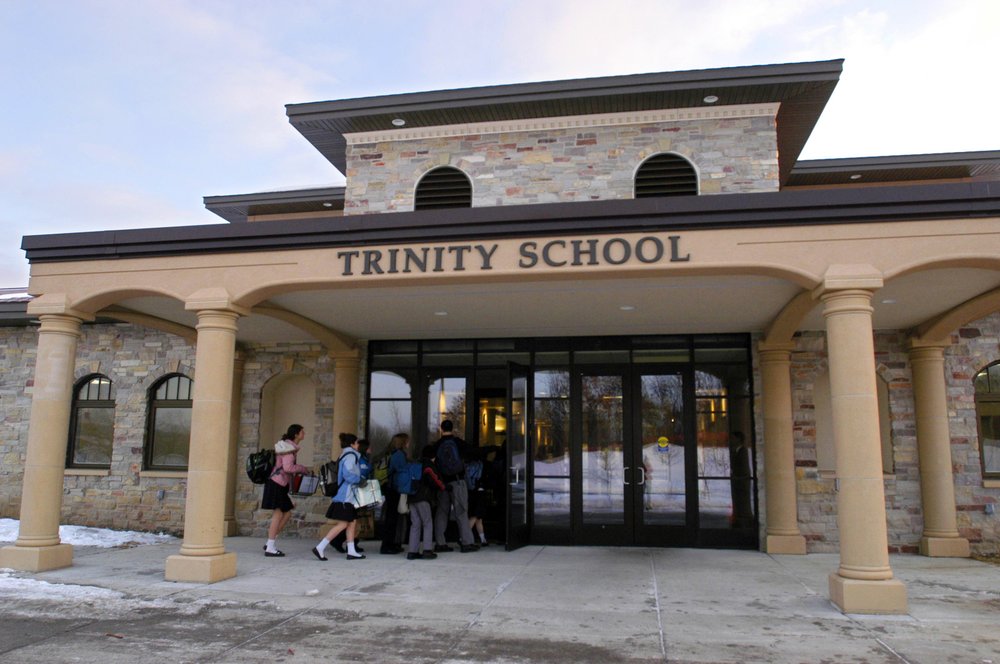
“Trinity Schools does not unlawfully discriminate with respect to race, color, gender, national origin, age, disability, or other legally protected classifications under applicable law, with respect to the administration of its programs,” said Jon Balsbaugh, president of Trinity Schools Inc., which runs the three campuses, in an email.
The actions are probably legal, experts said. Scholars said the school’s and organization’s teachings on homosexuality and treatment of LGBTQ people are harsher than those of the mainstream Catholic church. In a documentary released Wednesday, Pope Francis endorsed civil unions for the first time as pope, and said in an interview for the film that, “Homosexual people have the right to be in a family. They are children of God.”
Barrett’s views on whether LGBTQ people should have the same constitutional rights as other Americans became a focus last week in her Senate confirmation hearing. But her longtime membership in People of Praise and her leadership position at Trinity Schools were not discussed, even though most of the people the AP spoke with said her deep and decades-long involvement in the community signals she would be hostile to gay rights if confirmed.
Suzanne B. Goldberg, a professor at Columbia Law School who studies sexuality and gender law, said private schools have wide legal latitude to set admissions criteria. And, she said, Trinity probably isn’t covered by recent Supreme Court rulings outlawing employment discrimination against LGBTQ people because of its affiliation with a religious community. But, she added, cases addressing those questions are likely to come before the high court in the near future, and Barrett’s past oversight of Trinity’s discriminatory policies raises concerns.
“When any member of the judiciary affiliates themselves with an institution that is committed to discrimination on any ground, it is important to look more closely at how that affects the individual’s ability to give all cases a fair hearing,” Goldberg said.
The AP sent detailed questions for Barrett to the White House press office. Rather than providing direct answers, White House spokesman Judd Deere instead accused AP of attacking the nominee.
“Because Democrats and the media are unable to attack Judge Barrett’s sterling qualifications, they have instead turned to pathetic personal attacks on her children’s Christian school, even though the Supreme Court has repeatedly reaffirmed that religious schools are protected by the First Amendment,” Deere said in an email.
Nearly all the people interviewed for this story are gay or said they have gay family members. They used words such as “terrified,” “petrified” and “frightening” to describe the prospect of Barrett on the high court. Some of them know Barrett, have mutual friends with her or even have been in her home dozens of times. They describe her as “nice” or “a kind person,” but told the AP they feared others would suffer if Barrett tries to implement People of Praise’s views on homosexuality on the Supreme Court.
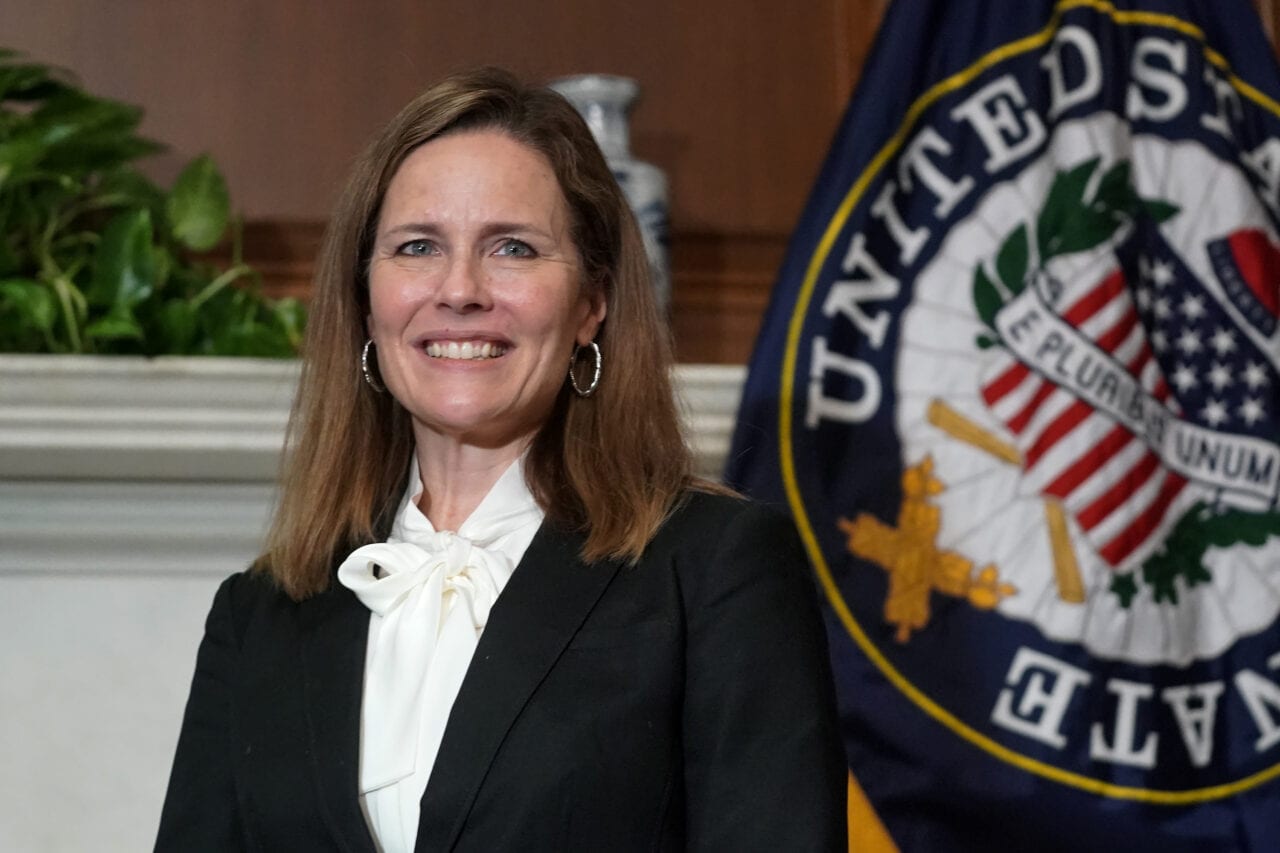
About half of the people asked not to be identified for fear of retaliation against themselves or their families from other members of People of Praise, or because they had not come out to everyone in their lives. Among those interviewed were people who attended all three of its schools and who had been active in several of its 22 branches. Their experiences stretched back as far as the 1970s, and as recently as 2020.
NOT WELCOME
Tom Henry was a senior at Trinity School in Eagan, Minnesota, serving as a student ambassador, providing tours to prospective families, when Barrett was an active member of the board.
In early 2017, a lesbian parent asked him whether Trinity was open to gay people and expressed concern about how her child would be treated.
Henry, who is gay, said he didn’t know what to say. He had been instructed not to answer questions about People of Praise or Trinity’s “politics.”
The next day, Henry recalled, he asked the school’s then-headmaster, Jon Balsbaugh, how he should have answered. Henry said Balsbaugh pulled a document out of his desk drawer that condemned gay marriage, and explained it was a new policy from People of Praise that was going into the handbook.
“He looked me right in the eye and said, the next time that happens, you tell them they would not be welcome here,” Henry recounted. “And he said to me that trans families, gay families, gay students, trans students would not feel welcome at Trinity Schools. And then he said, ‘Do we understand each other?’ And I said, yes. And I left. And then I quit the student ambassadors that day.”
Balsbaugh, who has since been promoted to president of Trinity Schools Inc., says his recollection of the conversation “differs considerably,” but declined to give details. He said it is likely he shared the school’s guidelines that at that time “had long been published in the parent handbook.”
Balsbaugh told the AP in an email that Barrett was not involved in the formulation or passage of any policies pertaining to homosexuality. He said Barrett served on the Trinity board from July 2015 to March 2017, and denied that the school’s leadership considered or formulated any new policy related to homosexuality during that time. He didn’t say whether the policy as described by Henry was ever adopted.
The school’s parent handbook says the board is the highest decision-making body, responsible for hiring the president and developing “broad institutional polices.”
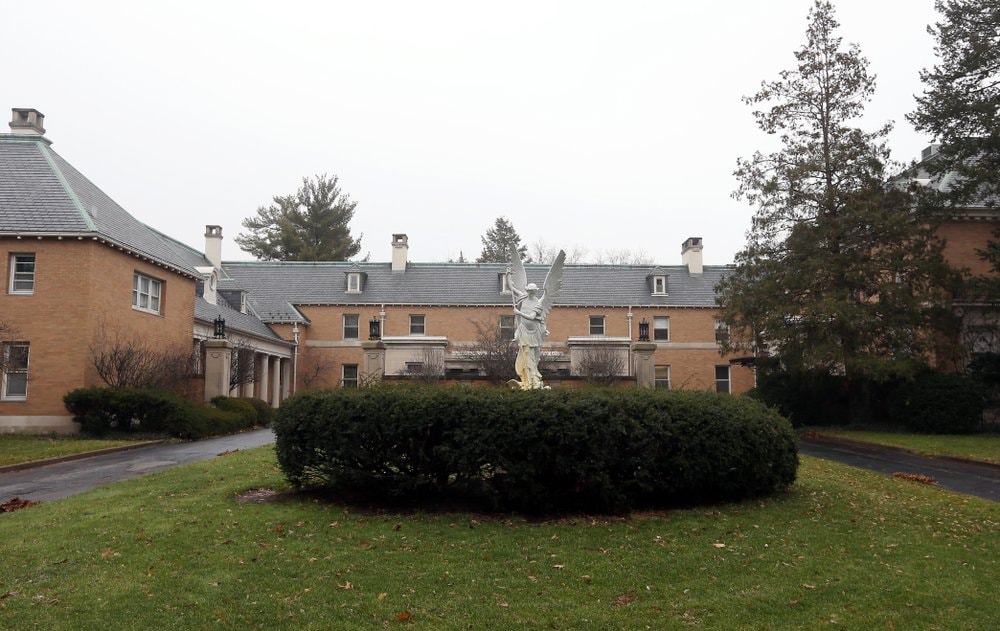
THE COMMUNITY
People of Praise is not a church but is a community in which people sign a “covenant” pledging love and service to fellow community members and to God. It has 1,700 members and grew out of the Catholic charismatic movement rooted in Pentecostalism that began in the late 1960s. It emphasizes a personal relationship with Jesus and can include baptism in the Holy Spirit, speaking in tongues and prophecy, according to former members, experts who have studied the movement, and its own publications. Most members are Roman Catholic.
Barrett has declined to say whether she is still an active member.
More than half of the people AP interviewed were involved with Trinity or People of Praise within the last decade. The AP verified the identities of everyone interviewed for this story through posts on the People of Praise and Trinity websites, published athletics results, school and membership directories, past listed addresses, or through other people verified by the AP as Trinity alumni or former members.
SCHOOL POLICIES
Multiple people who spoke with the AP detailed how Trinity’s leadership articulated and put in place policies that effectively barred gay families and employees.
A 2018-19 enrollment agreement obtained by the AP says “the only proper place for human sexual activity is marriage, where marriage is a legal and committed relationship between one man and one woman.” It goes on to say that activities such as “fornication, pornography, adultery and homosexual acts, and advocating or modeling any of these behaviors” are at odds with the school’s core beliefs.
Read More: Senate Democrats highlight Black maternal health care stories amid confirmation of Amy Coney Barrett
In 2014, the year before Barrett joined the board, the school’s trustees voted to limit admissions to the children of legally married couples or single parents. At the time, gay marriage was not legal in Indiana or Virginia. The wording was softened slightly after the 2015 Supreme Court ruling that effectively legalized same-sex marriage nationwide, though it still explicitly opposes LBGTQ relationships.
“The reason was not any desire to judge or punish, but to avoid potential confusion for our students regarding our consistent position that sexual activity is meant to be only within marriage, understood as the union of one man and one woman,” Balsbaugh said.
Balsbaugh said families and students don’t have to agree with the school’s positions, but it’s important that parents “understand and be able to support the culture that we are establishing.”
In addition to the written policies, school administrators made clear verbally they did not want to admit children of gay families, multiple people told the AP.
One described a faculty meeting at the Trinity School in Minnesota, where Balsbaugh, who was then headmaster, said in response to a question that people who subscribed to a religion other than Christianity would be welcome at the school because they were still “seeking truth.” Children of gay couples, on the other hand, would not be accepted, “because their life is so contrary to our beliefs, and essentially that it was a choice,” the person recalled Balsbaugh saying.
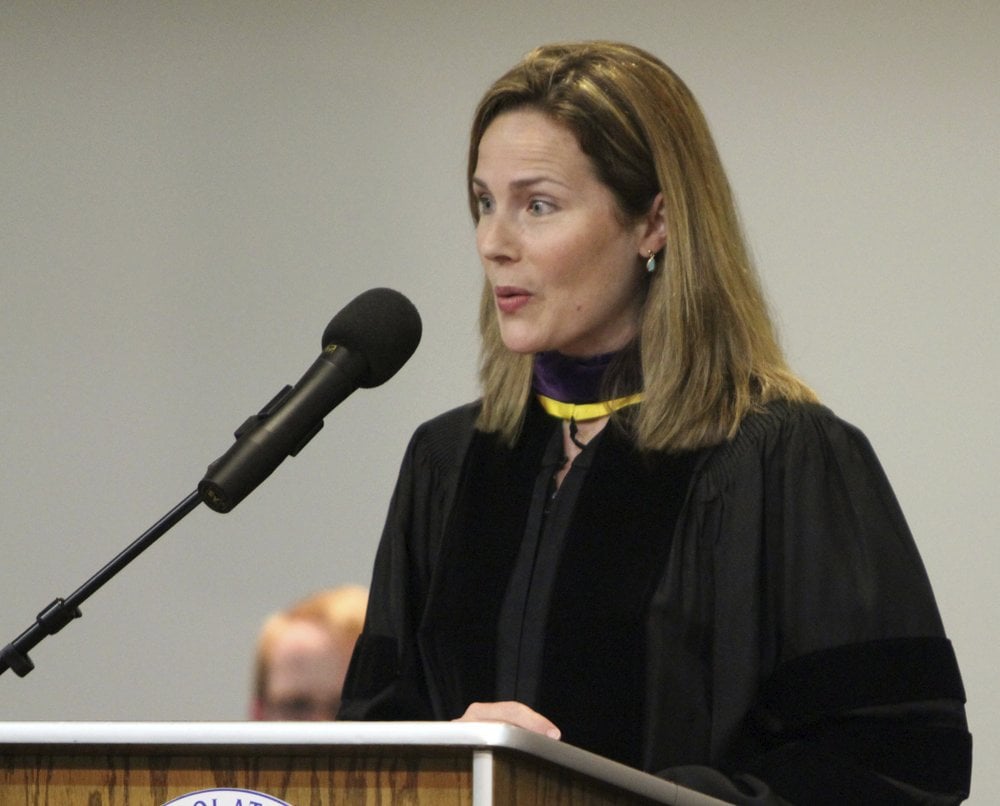
Balsbaugh said his recollection of the faculty meeting differed, but declined to give details. He denied this was the position of Trinity Schools, but declined to say whether children of gay couples would be admitted. He instead highlighted the school’s harassment policy against bullying or other abuse “based upon a student’s sex, race, ethnicity, religion, sexuality or perceived sexuality.”
“Such behaviors are considered major violations of our code of conduct for students and faculty alike,” the policy states.
A faculty employment agreement in place for the 2014-15 school year, obtained by the AP, states that “Blatant sexual immorality (for example, fornication, adultery, homosexual acts, etc.) has no place in the culture of Trinity Schools.”
Several people told the AP they were unaware of any openly gay employees and said it was understood that they were not welcome. One gay man spoke with the AP on condition of anonymity for fear of being ousted from his position at the school.
Balsbaugh told the AP many religious schools and faith-based groups have similar faculty agreements. He would not say whether the school has any LGBTQ teachers.
SCHOOL TEACHINGS
Many former students described a controlling and repressive environment where even a friendly hug could earn a detention. Michael Leehan spent six years at Trinity School in Minnesota, graduating in 2015. Leehan, who is gay and had come out to his friends at school, recalled being reprimanded by a dean for hugging a platonic male friend.
“I don’t know how else to describe it. He just got a kind of a mean look in his eye and venom in his voice,” Leehan said, recalling that the dean told him, “Don’t do that stuff here.” Leehan remembered a surge of anger — “the feeling of I’m dirty, in the context of this school.”
Several former students of varying ages who attend all three Trinity schools separately described being taught a vivid reading from Dante’s “Inferno” that depicts the eternal suffering of Sodomites condemned to hell for their sins. Four of them said teachers made clear the passage referred to gay men who were rightly suffering in hell. Some more recent graduates of the Minnesota school, however, said their teacher did not dwell on the passage.
Balsbaugh said Trinity teaches Dante “as a work of imaginative literature, not as a collection of moral or theological statements.”
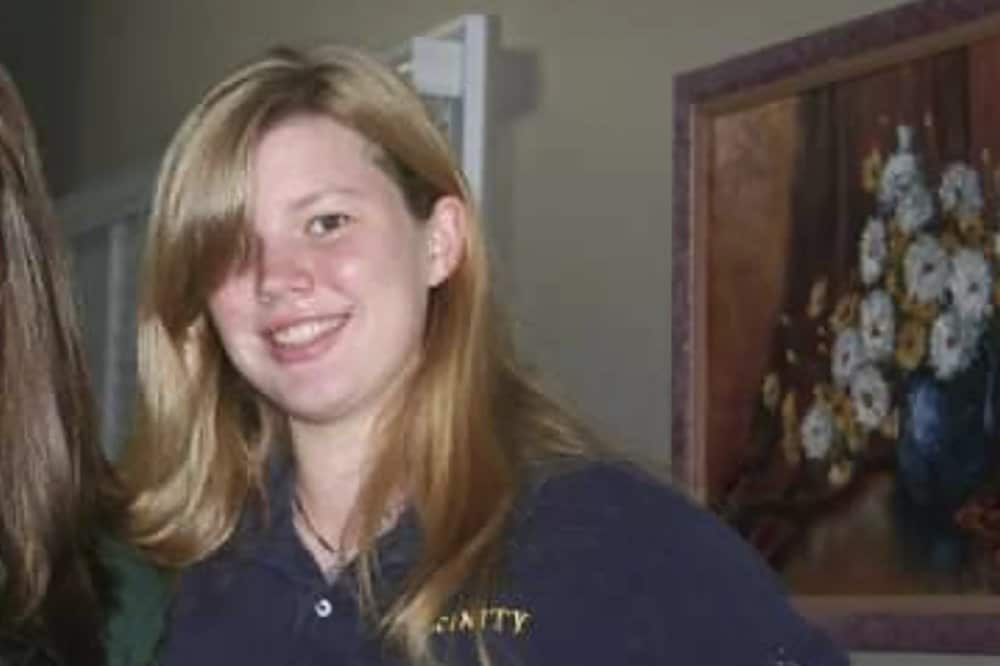
Cara Wood, 28, attended Trinity School at Meadow View in Falls Church, a Virginia suburb of the nation’s capital, and recalled the only time the school addressed homosexuality was when students read the “Inferno” and learned about gay men being in hell. Wood, who is bisexual, graduated in 2010.
“They called it sexual preference rather than … sexual orientation and typically we just wouldn’t address it at all,” Wood told the AP.
During her confirmation hearing last week, Barrett also framed sexuality as a “preference.” That wording is rejected by LGBTQ advocates because it suggests sexual orientation is a choice.
“I have no agenda, and I do want to be clear that I have never discriminated on the basis of sexual preference and would not ever discriminate on the basis of sexual preference,” Barrett said during the Oct. 13 hearing.
After some Democratic senators seized on her use of the term, Barrett apologized, saying she “did not mean any offense or to make any statement by that.”
Andrea Turpin-King transferred to the South Bend school in 1990, in the middle of her 7th grade year, after her father was struck and killed by a drunken driver after leaving a well-known gay bar. Her mother hoped she could get a fresh start after she was bullied at another school. The teachers at Trinity were told about what had happened, she said.
Turpin-King recalled that during 9th grade one of her teachers told the class that all gay people go to hell.
“When she said that, all I could picture was my dad’s face, and all I could think about was how much I missed his hugs,” Turpin-King told the AP. “And so, I said, I don’t think that’s true. And she said that I was going to go to hell, too.”
Turpin-King said: “It felt like a request for me to disavow my father’s humanity. Even in death. And I couldn’t do that.”
LIFE IN PEOPLE OF PRAISE
Many former members told the AP they struggled to reconcile People of Praise’s and Trinity Schools’ religious teachings with their sexual identity, and suffered fear, anxiety and trauma. Many felt they had to leave, even at the risk of being shunned by friends and family.
One 2015 Trinity graduate who grew up in People of Praise recalled members requesting that the community pray that their gay loved ones would “recover” from their homosexuality.
Another Trinity graduate, who spoke to the AP on condition of anonymity because his parents are still in People of Praise and his sexuality remains a sensitive topic for them, was forced to undergo conversion therapy after Trinity administrators learned he was gay at age 16. He also recounted being counseled by a senior People of Praise leader that same-sex attraction was “changeable” with treatment and prayer. The widely discredited practice has been condemned by mental health organizations and LGBTQ advocacy groups as pseudoscientific, unethical and psychologically harmful.
People of Praise spokesman Sean Connolly said the group had no knowledge of LGBTQ youths being referred for conversion therapy.
“People of Praise neither advocates for nor pays for such programs,” he said.
While some former members said they knew of no explicit People of Praise teaching against gay members, or said gay members could remain as long as they never acted on their sexual desires, most of those who spoke with the AP said it was clear gay people were not welcome.
Asked directly if a married same-sex couple or someone who is openly gay would be welcome within the community, Connolly responded, “People of Praise holds the standard Christian teaching, based on the New Testament, that sexual activity is meant for marriage, understood as the union of a man and a woman.”
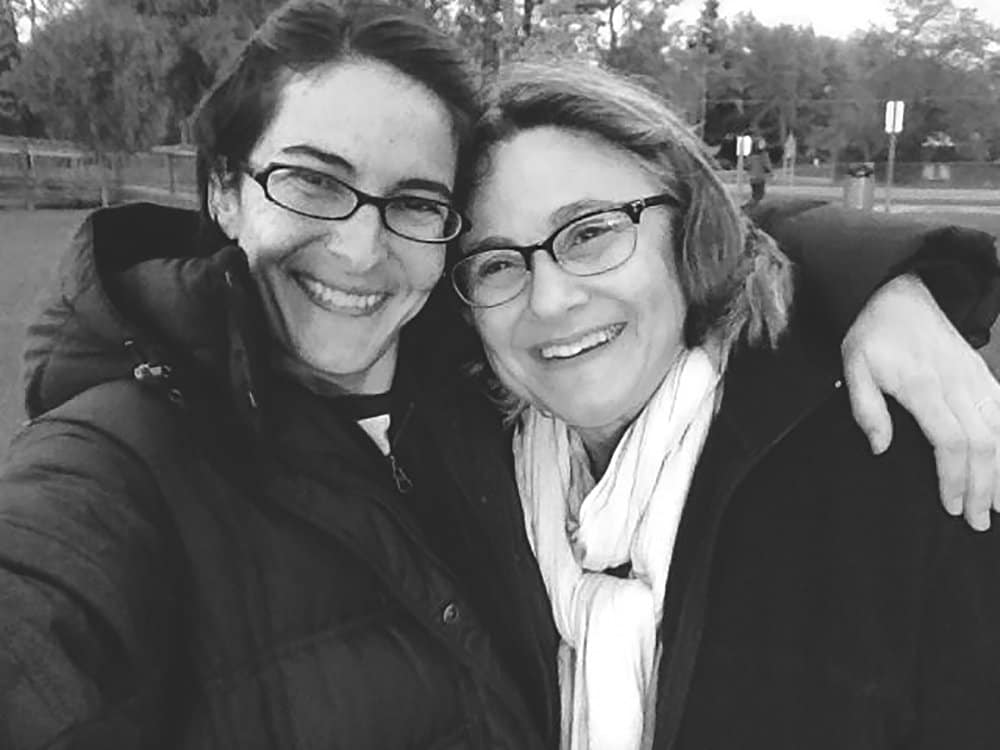
Camellia Pisegna’s family was expelled from the community they had been a part of for 15 years in South Bend when she came out as a lesbian around 1990, she and others told the AP. Pisegna’s children were shunned, even from lifelong friends. Even now, Pisegna said, no one has apologized, even though she still lives in the area.
“Any one of these hundreds of people could very easily find me,” Pisegna said. “But that’s never happened in 30 years.”
Connolly said that account of what happened was “not accurate,” though he declined to provide details “out of respect for all parties involved.”
“We believe that harassing or persecuting gays and lesbians is contrary to the Gospel and that everyone should be treated with dignity and respect,” Connolly said in an email.
Massimo Faggioli, a theology professor at Villanova University, said some of the community’s teachings are more in keeping with pre-1960s Catholicism than the modern church.
“It comes from a very literalist reading of scripture,” Faggioli said. “It’s no longer the official language used by the official teaching of the Catholic Church. It’s no longer used by the pope. It’s no longer used by official documents that still have a negative view of same-sex marriage.”
“Even John Paul II, even Pope Benedict, who had more conservative views on these things, they were very careful in never sounding (like) homophobes,” Faggioli said.
LEGAL RAMIFICATIONS
Barrett, in her hearing last week, refused to say whether she agreed with the Supreme Court’s ruling in Lawrence v. Texas, which in 2003 struck down state laws criminalizing sex acts between those of the same gender. She also repeatedly refused to say whether she agreed with the high court’s ruling in Obergefell v. Hodges, the landmark 5-to-4 decision in 2015 that effectively legalized same-sex marriage nationwide.
Barrett stressed that she did not intend to signal any opinion one way or another. If confirmed, she insisted, she would keep an open mind about how she might rule in any future cases.
Barrett’s position on gay rights is particularly crucial after two of the high court’s conservative justices, Clarence Thomas and Samuel Alito, this month wrote a dissenting opinion that appeared to call for the court to reconsider its 2015 same-sex marriage decision. Both Thomas and Alito were in the minority in that decision, as was deceased Justice Antonin Scalia, whose judicial philosophy Barrett has said mirrors her own.
Alphonso David, president of the Human Rights Campaign, an LGBTQ advocacy group that opposes Barrett’s confirmation, said his group fears “a far-right Supreme Court that could undermine the rights of marginalized communities and the LGBTQ community for decades.”
Read More: Amy Coney Barrett ruled n-word use does not make a workplace hostile
“Our love is valid, our love is equal, and our rights must be,” David said.
Turpin-King said she has briefly met Barrett, and they share mutual friends. Some of her husband’s family members are still members of the People of Praise community, and she loves and respects them. Many of Trinity’s teachers were wonderful to her. But the thought of Barrett sitting on the Supreme Court scares her.
“I am deeply concerned about my queer friends. I’m concerned about my own children,” Turpin-King said. “From what I experienced in People of Praise, as a student of one of their schools, everyone needs to be petrified, frankly.”
Have you subscribed to theGrio’s new podcast “Dear Culture”? Download our newest episodes now!
TheGrio is now on Apple TV, Amazon Fire, and Roku. Download theGrio today!
Loading the player…
Share
Published at Wed, 21 Oct 2020 15:38:37 +0000
